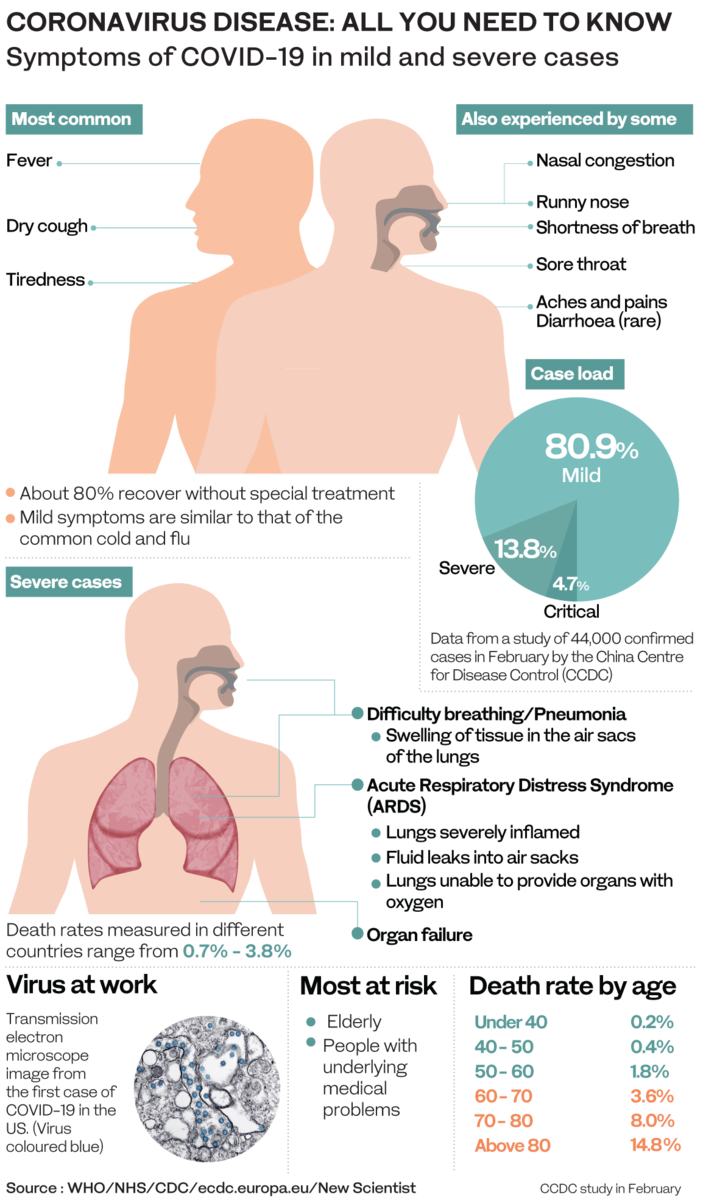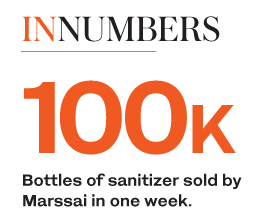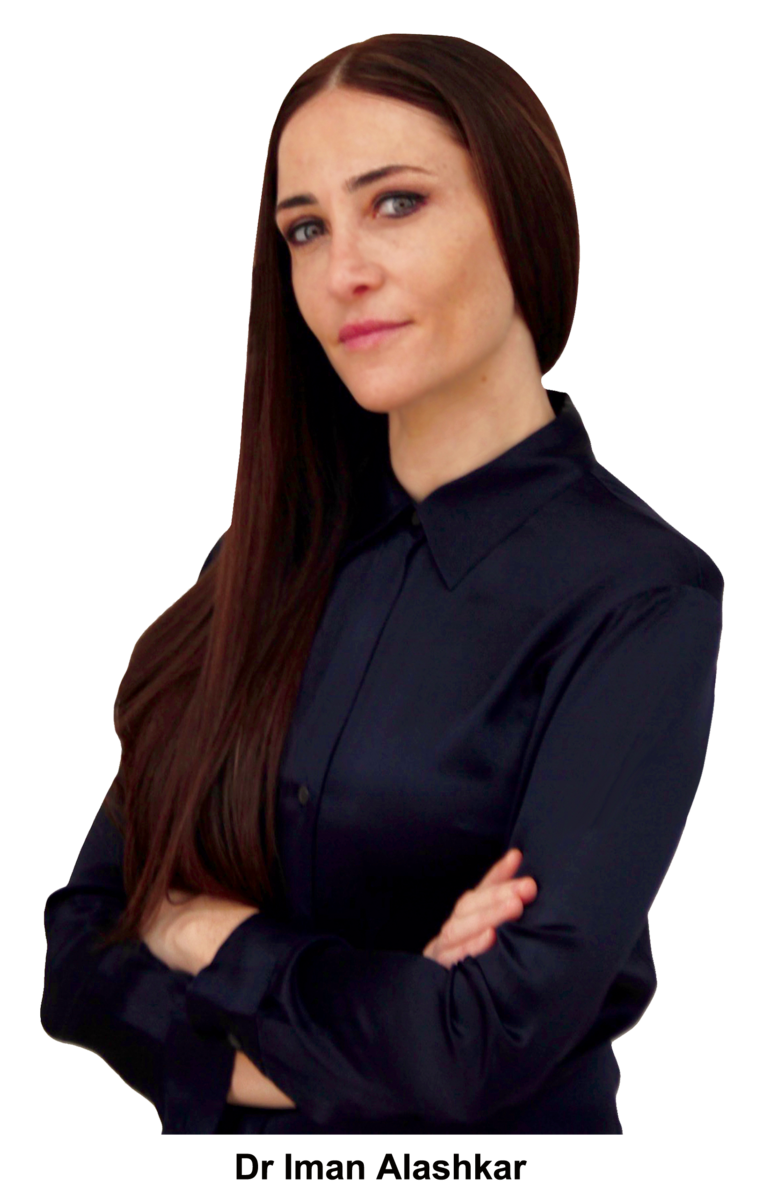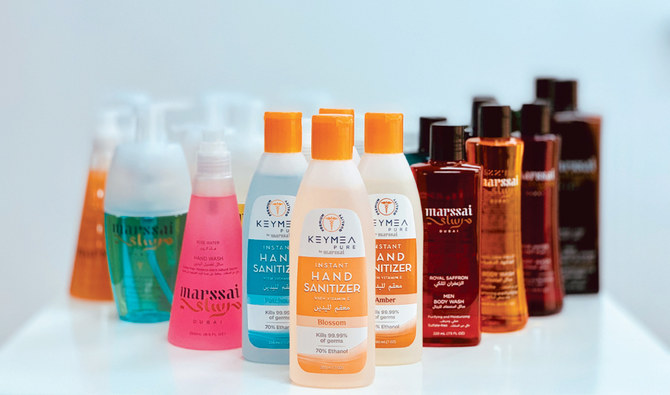DUBAI: Until a few weeks ago, they were widely considered good personal hygiene habits. But now, effective handwashing and use of hand sanitizer in community settings are strongly recommended as two of the most important measures to avoid the transmission of the deadly new coronavirus disease (COVID-19).
For Marssai, a Dubai-based company that manufactures hand sanitizer, handwash and shampoo, the public health crisis created by the COVID-19 outbreak has translated into sales so brisk as to be beyond its founder’s wildest dreams.
The female entrepreneur behind Marssai, which means “my anchor” in Arabic, says her staff have pulled out all the stops to meet the surge in demand for its personal-care products during these challenging times.
Dr. Iman Alashkar, a UAE resident of Syrian origin and a pharmaceutical scientist, says Marssai has sold close to 100,000 bottles of hand sanitizer in a single week.
“I’ve been working 24/7 for the past 10 days,” she told Arab News. “I’m not exaggerating but I worked at least 20 hours (a day), and am running on adrenaline.”
Alashkar, who is in her 40s, said her sleeping pattern has changed: She now devotes an hour or so per night to rest and spends every waking minute at work.
Just a few days ago, she said, she curled up on a staircase within her factory premises for a nap lasting all of two hours.
“When you do your Ph.D. in the US, you get trained to be tortured and to not sleep,” she joked, “but I’m OK.”
Alashkar says she is savoring every moment, no matter how hectic. “I love the fact that we’re making a difference and keeping the quality,” she said.
“It’s what keeps me going, and when you see it, it gives you that power. You have a purpose, and it gives you energy and light to keep doing. It’s tiring but fun.”
Marssai products are now selling in a number of supermarkets, including Choithrams and Carrefour. Pharmacies in the UAE have started reaching out to her to replenish their stocks.
Alashkar said she worked for several years in technology consulting in Boston, before opting to move back to Syria.
It was not a difficult decision: She belonged to a family with a strong connection to the Middle East’s pharmaceuticals industry.
“My training and expertise are in the pharmaceuticals domain. I got my Ph.D. in pharmaceutical sciences in Boston,” said Alashkar, who is also a member of the American Society of Cosmetic Chemists.

“My grandfather had a factory in Damascus and in Egypt in 1920, so I grew up around pharmaceutical products.”
With the civil war in Syria dragging on, Alashkar relocated to Dubai six years ago to set up her own factory and pursue her passion.
“I noticed there wasn’t much manufactured here for a place that’s really reputable and is identified for quality, class and lifestyle,” she said.
“I felt it didn’t have enough to represent it, and there wasn’t enough being manufactured here.”
Before the coronavirus storm struck, Alashkar’s factory in Dubai Science Park produced shampoo and handwash under the brand name Marssai, a name she chose to honor the Arabic connection (there is a separate children’s brand, Peekaboo).
“Dubai became a place that I loved, and I specifically wanted the brand to sound Arabic,” she said.
“The products are full of water, at least 80 percent, and for that, shopping for water internationally didn’t make sense. So it made sense to source the water locally.”
Alashkar describes the products made by Marssai as no less vital than food since both are required on a daily basis.
According to the World Health Organization (WHO), thousands of people die every day around the globe from infections acquired while receiving health care. “Hands are the main pathways of germ transmission during health care,” its website says.
Alashkar said: “It’s a human right. I wanted to start with what’s essential for us in terms of wellbeing in our life, something we use every day and that should be well made as part of consistent hygiene.”
According to her, it was important to manufacture the hygiene products locally. “We shouldn’t be paying a high price for an essential product we use every day, especially when half the price is shipping. It didn’t make sense,” Alashkar said.
It was not long after COVID-19 cases began to be reported in the UAE that supermarkets and pharmacies in the country found themselves struggling to keep pace with the soaring demand for hand sanitizers.
With its factory well placed to produce different types of hygiene products, Marssai was able to enter the market very quickly.
“The product range isn’t common in the region, but I built a factory with the same approach that one builds a sterile pharmaceutical lab,” Alashkar said.
“I took the time to make the ‘clean room approach’ the right way, an approach that isn’t known in the cosmetics industry,” she added,
“It served me well that we have an environment that’s very efficient and capable of making so many things in a clean and proper way.”
The factory in Dubai Science Park was built to prevent cross-contamination, she said, adding that by definition, this removes all conceivable risks when producing different types of products.

The coronavirus crisis hit just when Alashkar was working with her distributors to get the Carrefour supermarket chain to display Marssai’s traditional products. Before long, she was informed of a shortage of hand sanitizers.
“I knew I could make it, but I wasn’t sure of the packaging and the style,” she said. “We worked day and night to create the product. It got approved by the municipality and we launched more than 10 days ago.”
Since then, Alashkar and her team have been working practically nonstop to meet the demand for hand sanitizers.
“I’m on an adrenaline high and I haven’t slept all week, but I’m so happy people are liking it and I’m adding value,” she said.
“I feel I’m helping people in a way as well. Every entrepreneur needs a ‘why’ to keep them going. Sanitizer is a part of you, and it has to be pleasant if you’re using it for your wellbeing.”
The answer to the question “why” has been given by the situation caused by the COVID-19 pandemic, according to Alashkar, who wants to apply her experience and knowledge to ensure adequate supplies of hand-hygiene products for customers.
“There’s a huge demand,” she said. “I sold close to 100,000 bottles if you look at just the first week. I also have an anti-bacterial handwash, which I’d already prepared.”
Alashkar’s immediate plan is to rapidly increase production of the in-demand items in order to meet the needs of Dubai’s residents.
“I’m going to ramp it up, but I don’t have the capacity at the moment. The good thing is just being (able) to meet any demand the market has,” she said.
“I have no idea how I’m coping with the pressure, but my husband said he felt I’m like an extreme athlete who’s in the zone.”
Alashkar is not shy about admitting that the public-health emergency has given her the exposure and visibility she needs for future business expansion.
“The brainstorming needed for ramping up production made me aware of where the bottlenecks lay,” she said. “It’s a very nice thing to do.”
At the same time, she is under no illusion about the potentially temporary nature of the spike in demand for hand-hygiene products.
“I hope the threat from the coronavirus will disappear,” she said, “but as long as people need something to counter it, you should do your best to meet the demand.”
Ending the interview on a philosophical note, Alashkar said: “I can sense the mission. It feels like part of a community, and it’s my place to serve the community. It’s my specialty, so I can’t just go and rest. People need more.
“Maybe next month I won’t be needed, but now is the time I can serve my business and my community.”























